#language study
Thought i’d try a slightly different approach, particularly for the nouns to remember them. By breaking down individual meanings of the radicals within each character + pairing with a context driving trigger sentence. With Chinese, the radicals tell a story of how the word came to be, so perhaps looking at Chinese characters through that approach will encourage another level of long-term memory.
**Radical meanings are in bold + the vocabulary is CAPITALISED




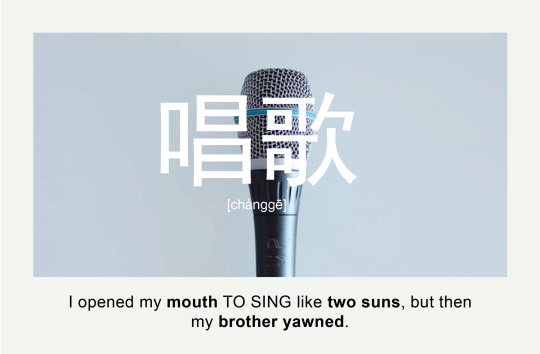

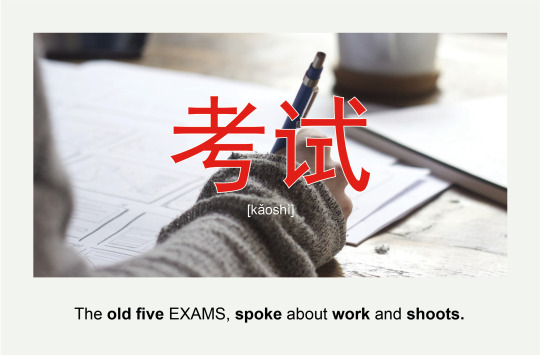



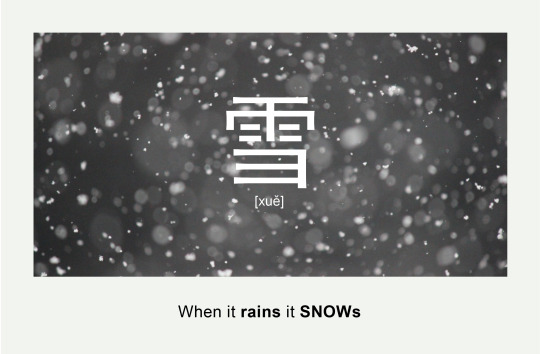
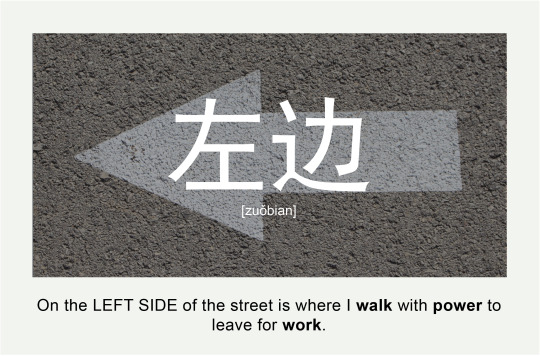

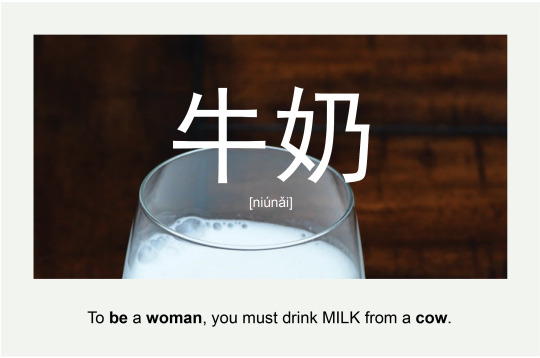
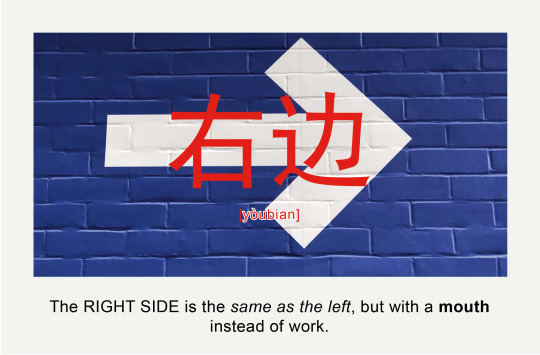


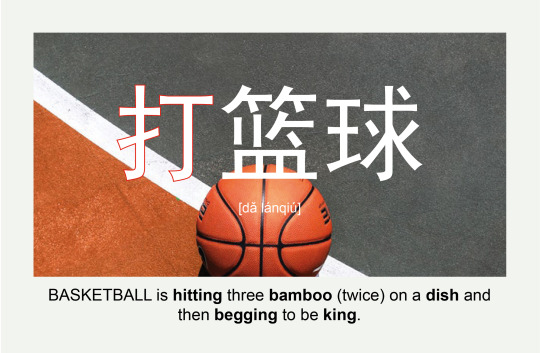

Taken from: Lili Does Critical Languages
Despite the plethora of free printable language trackers out there, tracking language learning is not that simple. You can track how many days you study and how many hours you study, but that doesn’t actually MEAN anything if you aren’t studying efficiently and retaining information. It’s less important how LONG you study and more important HOW you study. Now, I’ve probably pissed some people off. “So how the hell do I actually track where I am and what I’ve learned?” you’re probably asking. Well, that’s the million dollar question, isn’t it?! So many people think they aren’t improving in their language study because they can’t see their progress. So, they quit. BUT I do have the answer, so don’t touch that dial!
As humans we love to see exactly how our hard work has paid off. Basically, if you put work into something you will find that you tend to want to see exactly how much closer that hard work has brought you to your goals. That isn’t as simple in language learning but it is possible if you set the right goals and know how to track your progress in them.
How To Set Goals?
DON’T SCROLL PAST THIS PART. I know that it’s easy to roll your eyes and say, “Dude, I know how to set goals…” but hear this, you may be setting goals incorrectly. (DUN DUN DUN).
People often don’t know how to set goals in language learning and that is one of their BIGGEST set backs. Because people see lots of flim-flam around about “how to learn a language in three months” or “how to learn a language super duper uber fast”, they set HUGE goals like “be fluent in X months” or “speak fluently to people in X amount of weeks”. Why? Because they have been told that those goals are realistic! Those, my good friend, are not a good language learning goals and will set you up for disappointment and failure.
The correct way to set goals is to be VERY specific. However, there are two types of goals you should have: main goals and smaller goals.
Main Goals
Obviously, the overall goal is to be fluent, but that’s too big a goal to include on your list. Instead, first write down main goals. Main goals are goals that are used to track your overall progress in a language that are based on topics or situations. When making main goals, make only goals for that month, then add new ones for the next month or continue with last months if you didn’t finish. To explain the concept more clearly, I have posted a picture of my main goals for Chinese. However, it doesn’t matter if you’re learning French, Japanese, Korean, Polish or Spanish. You can use this template for learning any language.

As you can see, I have the month at the top, then on the left I have a tracker for how many days I have been studying. As you can see, there is a gap around the week of the 9th because that was my birthday! Then on the left, you’ll see the key. There I assigned colors to the different components of my language study I needed to complete:
Vocabulary means I study at least 10 vocabulary words within the topic during that week.
Speaking means I practice what I learned with a native speaker (usually via iTalki)
Reading means I read something within the monthly topic within that week
Writing means I write a few sentences within the topic that week
Below all this you see the topic of each week. For one topic I chose Art, so that week I focused on learning about Art (using lists on Tumblr, random materials online and random Youtube videos I found). The next week I learned about politics (specifically how to talk about American politics) and then week three I will do fashion and week four I will do idols (as in celebrities in Korea and China).
Below all that, you can see exactly what I’ve learned. You can see how my language capabilities have grown and exactly what I can now express! Isn’t that cool!!! You should track exactly what you’ve learned to express and then at the end of the month, compare that to what you were able to express last month. But the difference is, you can see exactly what you can and cannot express and maybe identify holes in your knowledge. So one month, you can repeat a topic to fill holes in your knowledge or expand deeper on the topic.
Small Goals
Small goals are little things you’d really like to learn that are outside of your main goals. You can set small goals like finishing a certain book, learning a new song or understanding an entire movie. These goals you can also interweave into your main goals to make it easier to accomplish them.
Learn Topic by Topic
This is the best way I know how to track language learning progress is to learn topic by topic. The more topics you are able to talk about, the more fluent you will become, right? Well, tracking your progress in topics is MUCH easier than tracking every single thing you learn arbitrarily! Each week, pick a topic you’d like to study and find materials related to the topic to help you get as much done as possible.
Topics Are Endless and So is Language Learning
Be patient!! Keep in mind that there are SO many topics to learn because language is VAST and there are many things in the world you can talk about. So the more topics you are able to learn, the more fluent you will become. This absolutely doesn’t happen overnight and I don’t believe it will happen in three months either. But if you just keep going and are consistent, you will find yourself able to speak more and more and more. And that’s what language learning is all about, a continual language learning process where the goal is just to keep improving, because there is always room!

Guess what ya’ll!? I’m a language coach now!! If you’re learning Chinese, Japanese or Korean I offer language coaching HSK prep, TOPIK prep, and JLPT Prep!! And get this! I will now CREATE A LANGUAGE LEARNING SCHEDULE FOR YOU!!! Yep! Just tell me your target language, level, resources and availability and I will do all the hard work for you!! Why? Because I have ten years of language learning experience and instead of going through trial and error trying to figure out what works for you, let ten years of experience do it for you. Imagine how much faster your language learning will go when all the technical details are sorted out for you!
1. Find a language partner on Hellotalk/Tandem
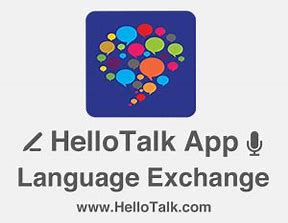
Talk over the phone with your language partner, it may be daunting at first but stick with it and you will really see the benefits in terms of your every day speaking. It’s free and you can make a new friend. If you are uncomfortable, try sending audio messages through the app and build the confidence to speak on the phone. It may be best to find a partner who is willing to do half the time entirely in chinese, half entirely in English, or you speak entirely in chinese, them entirely in English. If you have a partner who doesn’t seem genuinely willing to help you speak Chinese and only wants to practice English, move on!
2. Pay for 1-1 lessons on iTalki etc.

Over Hellotalk it may be difficult to make your teacher explain everything clearly and keep repeating certain things you missed because you may feel it’s just for chatting. With a teacher they also have better experience teaching so you’ll waste less time, they know what you are trying to say already (because teachers do have the magical power, they’ve seen hundreds of students before too)
I myself last semester hired a Chinese teacher and during our lessons I came prepared with all my questions and things I wanted to practice and the lesson must have been really boring for her, but I paid for lessons so I wanted to get the most benefit for myself, ha!
Additionally, if you have Wechat/Alipay you can find a teacher over Hellotalk and cut out the agent fee on apps like iTalki!
3. Listen more! (and repeat the audio material out loud)
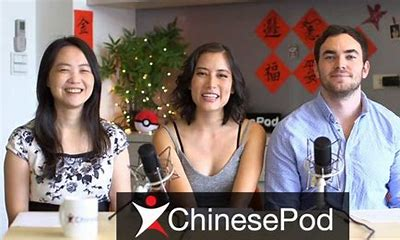
Listening to podcasts, especially situational ones, such as ChinesePod and CSLpod are the best for improving everyday speaking, you can get used to the rhythm and words used in everyday speech. You can also listen to bilibili or Youtube content creators who are speaking naturally to a camera. Listen more and you naturally can improve your speaking also. Haven’t you ever met those English non-natives who have good accents and speak well, ask them why and they often say they watch a lot of American TV?
4. Record yourself on your phone talking about a topic

Sometimes there are times when I want to learn about a topic but don’t have a partner to discuss. It also gives you time to ‘slow down’ and really think about the words you want to say and how to get your point across because you are less nervous. For example, I am interested in politics and nutrition, but when talking with somebody the conversation may go into a different direction and I can’t practice the words I wanted, I therefore occasionally record myself talking on a topic. It is also good to keep as a record of progress and to re-listen for your own mistakes, particularly in tones and grammar!
Do you have any other tips? Share them in the comments!
Podcasts are simply the best way to squeeze in study time into busy schedules. Doing any sport, doing groceries, walking to/from school and work, extra time can be squeezed in (I always think back to the analogy with the stones, pebbles, sand and water in a cup, remember that post by Hacking Chinese?).
Below is some Intermediate to advanced appropriate listening material. If you have any suggestions don’t hesitate to contact me!
By the way, I am thinking of creating an Instagram account, is that anything you are interested in? Let me know!!
Podcast software/Apps:
Stitcher, Spotify and Ximalaya all have mobile apps and desktop versions for easy syncing.
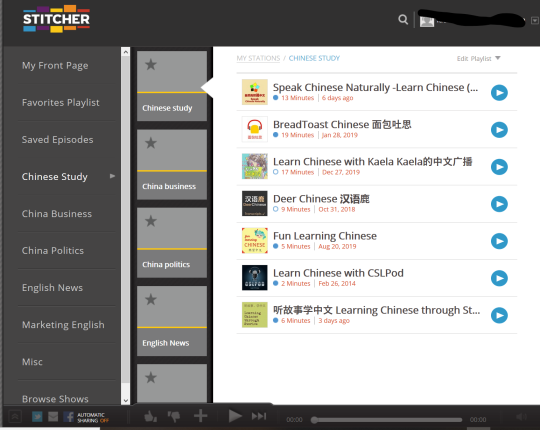
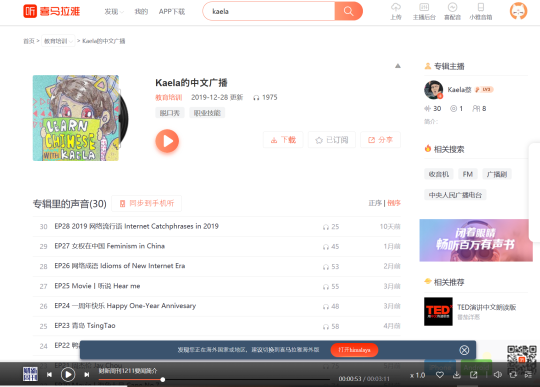

Podcast Shows:
Ximalaya Podcasts:
- 青春逗[this show is presented by two 海归 (Chinese returnees, i.e. two Chinese who have lived abroad and come back to China), therefore they sometimes mix English words within the podcast. It is a contempary topic discussion podcast, spoken in natural language between the two presenters and sometimes a third guest] https://www.ximalaya.com/shishang/18796952/
- Linda讲故事 [naturally spoken language, one person retelling a story, natural and unscripted] https://www.ximalaya.com/qinggan/29392148/
- 健康生活100问 [has a question about nutrition and it answers the question in 3-5 minute short episodes, for example ‘is MSG really bad for health?’, 'which is healthier, cow milk or soy milk?’] https://www.ximalaya.com/jiankang/18734760/
- 故事FM [each episode has a different person come to tell their story about some kind of topic, such as being abused, quitting a 'top school’, and other stories that tell lives of very ordinary people but presents a picture of lives of ordinary chinese people with a story to tell. It’s also spoken in natural, unscripted language with a host] https://www.ximalaya.com/toutiao/7878702/
- 失眠小姐[Short 3-5 minute 'life advice’ to soft background music] https://www.ximalaya.com/qinggan/292190/
- 唐诗三百首 [Learn the 300 Tang Poems] https://www.ximalaya.com/ertong/16479532/
- Kaela的中文广播 Learn Chinese with Kaela [a naturally spoken podcast presented by Kaela, transcripts for the show found at https://gaerdan.wordpress.com/ https://www.ximalaya.com/jiaoyu/16634873/
Stitcher Podcasts:
Simply search the below podcasts in your podcast app
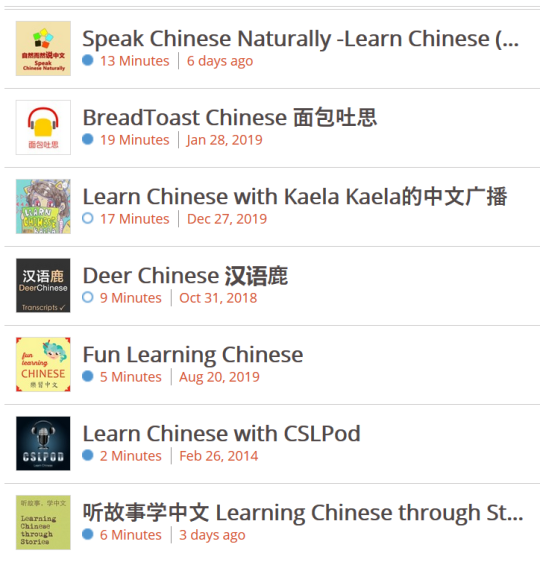
Misc Podcast Websites:
These podcasts you can access through the podcast website (the ones with *s are ones I have used and are very good, its worth spending time on the website, you can download the MP3s to your phone)
o https://www.slow-chinese.com/podcast/*
o http://justlearnchinese.com/mini-novels/
o https://mandarinbean.com/category/advanced/
o http://justlearnchinese.com/category/chinese-short-stories/
Do you have anymore? Please share in the comments!
Spanish vocab // el colegio - la universidad
- compañero/a de clase = classmate
- compañero/a de cuarto = roommate
- estudiante = student
- el/la profesor(a) = teacher
- la papelera = wastebasket
- la pizarra = blackboard
- la puerta = door
- la silla = chair
- la tiza = chalk
- la biblioteca = library
- el bar = snackbar
- la cafetería = cafeteria
- el coliseo = stadium
- el laboratorio = laboratory
- la librería/papelería = bookstore
- la residencia estudiantil = dormitory
- la universidad = university or college
- la clase = class
- el curso o la materia = course
- la especialización = major
- el examen = exam (usually used for finals)
- horario = schedule
- la prueba = test or quiz
- el semestre = semester
- la tarea = homework
- el trimestre = trimester; quarter
If you would like to learn more spanish with me, dm me and we could set up a schedule. I am a native spanish speaker and I am offering spanish tutoring for as low as $7 the hour, and $30 the 10 lessons via discord or zoom.
Since I’m suddenly a spanish studyblr, I feel like I have to remind you all that there is no such thing as perfect spanish and your grades are not an indicator of your fluency or your habilities to learn a language.
Knowing how to conjugate verbs with vosotros is really not that important, nor is it to use ser o estar correctly. Yes, accuracy is good, but being able to communicate is essential. So please be kinder to yourself and don’t be afraid to speak another language, because I can tell you that no native spanish speaker will stop to point out your mistakes.
Lately I have been paying more attention to characters that are pronounced differently between the Mainland and Taiwan. This list is definitely not comprehensive, but I wanted to gather the differences I’ve noticed in my own studies. The format below is: Mainland pronunciation | Taiwan pronunciation. I’ve also listed some words containing the characters in question.
究 jiū | jiù - after all / to investigate / to study carefully
研究 yánjiū | yánjiù - research / a study / to research / to look into
讲究 jiǎngjiu | 講究 jiǎngjiù - to pay particular attention to / carefully selected for quality / tastefully chosen
究竟 jiūjìng | jiùjìng - to go to the bottom of a matter / after all / when all is said and done / finally / outcome / result质 zhì | 質 zhí - character / nature / quality / plain / to pawn / pledge / hostage / to question
*In Taiwanese Mandarin, 質 is pronounced zhì when meaning to pawn / hostage, like the word 人質.质量 zhìliàng | 質量 zhíliàng - quality / mass
本质 běnzhì | 本質 běnzhí - essence / nature / innate character / intrinsic quality
质疑 zhìyí | 質疑 zhíyí - to call into question / to question (truth or validity)识 shí | 識 shì - to know / knowledge
知识 zhīshi | 知識 zhīshì - knowledge / intellectual
意识 yìshí | 意識 yìshì - consciousness / awareness / to be aware / to realize
认识 rènshi | 認識 rènshì - to know / to recognize / to be familiar with / to get acquainted with sb / knowledge / understanding / awareness / cognition企 qǐ | qì - to plan a project / to stand on tiptoe
企业 qǐyè | 企業 qìyè - company / firm / enterprise / corporation
企图 qǐtú | 企圖 qìtú - to attempt / to try / attempt
企鹅 qǐ’é | 企鵝 qì’é - penguin息 xī | xí - breath / news / interest (on an investment or loan) / to cease / to stop / to rest
消息 xiāoxi | xiāoxí - news / information
利息 lìxī | lìxí - interest (on a loan)
信息 xìnxī | xìnxí - information / news / message危 wēi | wéi - danger / to endanger
危机 wēijī | 危機 wéijī - crisis
危害 wēihài | wéihài - to jeopardize / to harm / to endanger / harmful effect / damage
危险 wēixiǎn | 危險 wéixiǎn - danger / dangerous突 tū | tú - to dash / to move forward quickly / to bulge / to protrude / to break through / to rush out / sudden
突然 tūrán | túrán - sudden / abrupt / unexpected
突出 tūchū | túchū - prominent / outstanding / to give prominence to / to protrude / to project
突破 tūpò | túpò - to break through / to make a breakthrough / to surmount (an obstacle)
Here’s an update to my original post with 25(!!!) more tone differences. The definitions are from MDBG with a few modifications here and there. I find these soooo interesting, but the one problem is that now I’m sometimes getting confused about which pronunciation to use. So proceed with caution!
差 chà | chā - to differ from / to fall short of / lacking / wrong / inferior
In Mainland China, 差 can be pronounced chā, but the meaning is different:
差 chā - difference / discrepancy / to differ / error / to err / to make a mistake
I guess the two definitions are essentially merged in Taiwanese Mandarin. This honestly sounds great because I often get confused between 差 chà and 差 chā.
相差 xiāngchà | xiāngchā- to differ / discrepancy between
差不多 chàbuduō | chābuduō- almost / nearly / more or less / about the same / good enough / not bad
差点 chàdiǎn | 差點 chādiǎn - almost / nearly
挨 ái | āi - to suffer / to endure / to pull through (hard times) / to delay / to stall / to play for time / to dawdle
This is another example where in the Mainland, the character has multiple pronunciations with different meanings:
挨 āi in order / in sequence / close to / adjacent to
But there is only one pronunciation in Taiwanese Mandarin.
挨打 áidǎ | āidǎ - to take a beating / to get thrashed / to come under attack
挨骂 áimà | 挨罵 āimà - to receive a scolding
综 zōng | 綜 zòng - to sum up / to put together
There is also another (different) pronunciation distinction for this character:
综 zèng | 綜 zòng - heddle (device to form warp in weaving textiles)
错综复杂 cuòzōngfùzá | 錯綜複雜 cuòzòngfùzá - tangled and complicated
综合 zōnghé | 綜合 zònghé - comprehensive / composite / synthesized / mixed / to sum up / to integrate / to synthesize
综艺 zōngyì | 綜藝 zòngyì - variety (entertainment format)
萎 wěi | wēi - to wither / to drop / to decline / spiritless
枯萎 kūwěi | kūwēi - to wilt / to wither / wilted / withered / drained / enervated / exhausted
跌 diē | dié - to fall / to tumble / to trip / (of prices etc) to drop
下跌 xiàdiē | xiàdié - to fall / to tumble
跌倒 diēdǎo | diédǎo - to tumble / to fall / fig. to suffer a reverse (in politics or business)
跌落 diēluò | diéluò - to fall / to drop
档 dàng | 檔 dǎng - official records / grade (of goods) / file / records / shelves / slot / gap / crosspiece / classifier for crosspieces / classifier for events, affairs etc
高档 gāodàng | 高檔 gāodǎng - superior quality / high grade / top grade
文档 wéndàng | 文檔 wéndǎng - (computer) file
搭档 dādàng | 搭檔 dādǎng - to cooperate / partner
帆 fān | fán - sail
According to MDBG, this character is pronounced with the first tone in Taiwan in the word 帆布 (canvas).
Also, there is another fān vs. fán situation where it appears two traditional characters were merged to 帆 in simplified:
帆 fān | 颿 fán - to gallop
帆船 fānchuán | fánchuán - sailboat
一帆风顺 yìfānfēngshùn | 一帆風順 yìfánfēngshùn - propitious wind throughout the journey (idiom) / plain sailing / to go smoothly / have a nice trip!
夹 jiā | 夾 jiá - to press from either side / to place in between / to sandwich / to carry sth under armpit / wedged between / between / to intersperse / to mix / to mingle / clip / folder
Interestingly, there is another definition that is second tone on both sides of the straight:
夹 | 夾 jiá - double-layered / lined (garment)
Also, apparently there are a couple words that are pronounced with the fourth tone in Taiwan:
夹 | 夾 jià - used in 夾生|夹生 and 夾竹桃|夹竹桃
夹克 jiākè | 夾克 jiákè - jacket (loanword)
宁 nìng | 寧 níng - would rather / to prefer / how (emphatic)
In Taiwanese Mandarin, this character is pronounced the same as the pronunciation of 宁 that you are probably more used to seeing:
宁 | 寧 níng - peaceful / to pacify / to visit (one’s parents etc)
宁可 nìngkě | 寧可 níngkě - preferably / one would prefer to…(or not to…) / would rather / (would) be better to / (to pick) the lesser of two evils
宁愿 nìngyuàn | 寧願 níngyuàn - would rather / better
叔 shū | shú - uncle / father’s younger brother / husband’s younger brother
叔叔 shūshu | shúshu - father’s younger brother / uncle
筑 zhù | zhú - to build / to construct / to ram / to hit
In addition, there is a character that is identical in simplified characters with the same pronunciation split:
筑 zhù | 築 zhú - five-string lute
建筑 jiànzhù | 建築 jiànzhú - to construct / building
菌 jūn | jùn - germ / bacteria / fungus / mold
There is also another definition for 菌:
菌 jùn - mushroom
病菌 bìngjūn | bìngjùn - harmful bacteria / pathogenic bacteria / germs
杀菌 shājūn | 殺菌 shājùn - to kill germs / to disinfect / to sterilize
懵 měng | méng - stupid
懵懂 měngdǒng | méngdǒng - confused / ignorant
For 懵懂, because of third tone -> second tone rule, there shouldn’t be a difference. I thought this was amusing.
悄 qiǎo - quiet / sad
In the Mainland, 悄 is third tone in words like 悄然无声, but when duplicated as 悄悄, it is first tone. However, it Taiwan, it remains third tone.
悄悄 qiāoqiāo | qiǎoqiǎo - quietly / secretly / stealthily / quiet / worried
结 jiē | 結 jié - (of a plant) to produce (fruit or seeds)
In the Mainland, there is a distinction between 结 jiē and 结 jié:
结 | 結 jié - knot / sturdy / bond / to tie / to bind / to check out (of a hotel)
结果 jiēguǒ | 結果 jiéguǒ - to bear fruit
So this word sounds just like the 结果 you are probably more familiar with:
结果 | 結果 jiéguǒ - outcome / result / conclusion / in the end / as a result / to kill / to dispatch
载 zǎi | 載 zài - to record in writing / to carry (i.e. publish in a newspaper etc) / year
载 can also be pronounced with the fourth tone in the Mainland, but the meaning is different:
载 | 載 zài - to carry / to convey / to load / to hold / to fill up / and / also / as well as / simultaneously
下载 xiàzǎi | 下載 xiàzài - to download
记载 jìzǎi | 記載 jìzài - to write down / to record / written account
转载 zhuǎnzǎi | 轉載 zhuǎnzài - to forward (a shipment) / to reprint sth published elsewhere
绩 jì | 績 jī - to spin (hemp etc) / merit / accomplishment
成绩 chéngjì | 成績 chéngjī - achievement / performance records / grades
丰功伟绩 fēnggōngwěijì | 豐功偉績 fēnggōngwěijī - glorious achievement
亚 yà | 亞 yǎ - second / next to / inferior / sub- OR Asia / Asian
*The Taiwanese Mandarin dictionaries I looked at actually use yà, not yǎ, but I’ve heard yǎ spoken. I’m guessing it’s a nonstandard pronunciation.
亚洲 yàzhōu | 亞洲 yǎzhōu - Asia
亚军 yàjūn | 亞軍 yǎjūn - second place (in a sports contest) / runner-up
发 fà | 髮 fǎ - hair
发 is a 多音字 in simplified Chinese, but not in traditional:
发 | 發 fā - to send out / to show (one’s feeling) / to issue / to develop / to make a bundle of money / classifier for gunshots (rounds)
头发 tóufa | 頭髮 tóufǎ - hair (on the head)
发型 fàxíng | 髮型 fǎxíng - hairstyle / hairdo
朴 pǔ | 樸 pú - plain and simple
The simplified version of this character has other definitions/pronunciations as well:
朴 piáo | pú - surname Piao (eq. to Korean surname Park)
朴 pò - Celtis sinensis var. japonica
简朴 jiǎnpǔ | 簡樸 jiǎnpú - simple and unadorned / plain
淳朴 chúnpǔ | 淳樸 chúnpú - simple and honest / unsophisticated / guileless
炸 zhá | zhà - to deep fry
炸 zhà - to burst / to explode / to blow up / (fig.) to fly into a rage
Another example of two distinct pronunciations in the Mainland being the same in Taiwan.
炸鸡 zhájī | 炸雞 zhàjī - fried chicken
炸酱面 zhájiàngmiàn | 炸醬麵 zhàjiàngmiàn - pork and fermented soybean paste noodle dish (also known as jjajangmyeon in Korean)
淑 shū | shú - warm and virtuous
This character is not uncommon in names (usually older women).
淑女 shūnǚ | shúnǚ - wise and virtuous woman / lady
褐 hè | hé - brown / gray or dark color / coarse hemp cloth
褐色 hèsè | hésè - brown
驯 xùn | 馴 xún - to attain gradually / to tame
驯服 xùnfú | 馴服 xúnfú - to tame / tame / docile
驯化 xùnhuà | 馴化 xúnhuà - to tame / to domesticate
涛 tāo | 濤 táo - big wave
This character can be found in names, like that of former PRC president Hu Jintao (胡锦涛).
波涛 bōtāo | 波濤 bōtáo - great waves / billows
This is a simple yet lovely song by Super Girl and Sisters Who Make Waves alum Bibi Zhou (who is also one of my favorite singers). This song came out in 2018 and became one of her biggest hits, thus earning its spot in my iconic/popular Mandopop songs series. I’ll admit, I didn’t really notice this song at first just because nothing about it stood out to me. But it grew on me over time. The lyrics are also relatively simple and repetitive, so it’s easy to sing along. Sadly, this song isn’t on US Spotify. The lyric video below has an impressive 19 million views though!
周笔畅 (Bibi Zhou) - 最美的期待
我有一个梦 像雨后彩虹
用所有泪水换来笑容
还有一种爱穿越了人海
拾起那颗迷失的尘埃
你的呼吸 越靠越近 将我抱紧
彩虹 cǎihóng - rainbow
穿越 chuānyuè - to pass through / to traverse / to cross
拾 shí - to pick up / to collate or arrange
我睁开双眼 想你在身边
无所谓永远还是瞬间
静闭上了眼 你却又浮现
带我远离寂寞的边缘
忘了是非没有伤悲无怨无悔
浮现 fúxiàn - to appear before one’s eyes / to come into view / to float into appearance / to come back (of images from the past) / to emerge / it emerges / it occurs (to me that..)
远离 yuǎnlí - to be far from / to keep away from
边缘 biānyuán - edge / fringe / verge / brink / periphery / marginal / borderline
是非 shìfēi - right and wrong / quarrel
无怨无悔 wúyuànwúhuǐ - no complaints / to have no regrets
我拥抱着爱 当从梦中醒来
你执着地等待 却不曾离开
舍不得分开 在每一次醒来
不用再徘徊你就是我最美的期待
执着 zhízhuó - to be strongly attached to / to be dedicated / to cling to
徘徊 páihuái - to dither / to hesitate / to pace back and forth / to hover around / to linger
我睁开双眼 想你在身边
无所谓永远还是瞬间
静闭上了眼 你却又浮现
带我远离寂寞的边缘
忘了是非 没有伤悲 无怨无悔
我拥抱着爱 当从梦中醒来
你执着的等待 却不曾离开
舍不得分开 在每一次醒来
不用再徘徊 你就是我最美的期待
我拥抱着爱 当从梦中醒来
你执着地等待 却不曾离开
舍不得分开 在每一次醒来
不用再徘徊 你就是我最美的期待
There are so many express to say “if” (in the sense of “supposing that”) in Chinese! I’ve gathered all the ways I could think of below. Some are more formal or less formal or might have other uses/meanings. The example sentences are from Pleco.
如果 rúguǒ - if / in case / in the event that
你如果要来,请事先告诉我。
要是 yàoshi - if (colloquial)
要是下雨怎么办?
假如 jiǎrú - if
假如明天开会,准备工作来得及吗?
假使 jiǎshǐ - if / in case / suppose / given
假使他到这儿来,通知我一下。
倘若 tǎngruò - provided that / supposing that / if (literary)
倘若错过这个机会,你会后悔的。
若是 ruòshì - if (literary)
各位若是有不同意见,请即提出。
假若 jiǎruò - if / supposing / in case
假若我来不了,我会通知你的。
的话 dehuà - if (colloquial, coming after a conditional clause)
有事的话,就不要来了。
假设 jiǎshè - to suppose / to presume / to assume / supposing that … / if / hypothesis / conjecture
假设你赢了一百万元,你会买什么?
若 ruò - to seem / like / as / if (literary)
若有问题,请及时与我电话联系。
倘 tǎng - if / supposing / in case (literary)
倘能如此,就最好不过了。
要 yào - important / vital / to want / to ask for / will / going to (as future auxiliary) / may / must / (used in a comparison) must be / probably / if
我要不回来,请替我说一声。
如 rú - as / as if / such as / if (literary)
如妥善处理,问题不难解决。
Here are some others that were listed in the dictionary but that I haven’t actually encountered:
如若、如其、设若、若果、倘或、倘然、倘使、若然、设使、倘使
I first started looking into variant characters more extensively after the frustration of some of these variants messing with my pop-up dictionary extension. Sometimes the same word will be included in the dictionary with both the standard and variant versions, but sometimes the variant version isn’t included, and my extension won’t recognize the word. That’s why I think it can be useful to be familiar with these variant forms.
Variants I See in Traditional Chinese
布 / 佈
I have seen 佈 used in traditional Chinese as a variant of 布. An example might be seeing 佈滿 for 布满.
念 / 唸
MDBG seems to suggest that 唸 is a variant of 念 just meaning to read aloud. But I know I’ve seen 唸 used in traditional Chinese to talk about going to school like 唸大學 and 唸書. I’m not sure if what MDBG says is inaccurate or if people use 唸 is a way that is technically inaccurate.
周 / 週
It’s important to note that 週 is a traditional Chinese variant of 周 only for the meaning of week. So you might see 週末, but you shouldn’t see 週 used for the surname or the word 周围.
分 / 份
I think I have seen 份 used for 分 in both simplified and traditional Chinese. Unlike some of the other examples above, 份 also has meaning/usage outside of being a variant of 分. Also, I am pretty sure that 份 is only a variant of 分 for the 4th tone pronunciation (meaning part, share, ingredient, component).
占 / 佔
占 has two meanings/pronunciations. To my knowledge, 佔 is only a variant for the fourth tone pronunciation. But also I don’t know any words with first tone 占. I’ve seen 佔 used in traditional Chinese for words like 佔據 (占据).
什 / 甚
In traditional Chinese, you might see 甚 used for 什, like in 甚麼 (什么). In simplified Chinese, this variant can still be found in words like 甚至 (but the pronunciation is different).
才/ 纔
This variant form of 才 is used in traditional Chinese, but only for the meaning of just now, only. However, I rarely see it. And looking at it, I don’t blame people for not wanting to write 纔.
台 / 臺
This example can be a bit political. You may see Taiwan written as 台灣 or 臺灣 in traditional Chinese. I believe 臺灣 is more formal/official, but you’ll definitely see 台灣 all the time.
向 / 嚮
嚮 is a variant of 向 in traditional Chinese, but (apparently) only for the meaning to tend toward, to guide. As a result, 方向 is the same in traditional Chinese, but 面向 is 面嚮. However, it’s possible that this rule doesn’t hold up in real life usage. I’m definitely going to be on the lookout for exceptions. Also, MDBG tells me that there is another traditional variant 曏, but I’ve personally never encountered this character.
姐 / 姊
Apparently 姊 is pronounced zi in the Mainland, but it’s jie in Taiwan, which I know from A-Mei’s album and song 姊妹. I don’t think 姊 is officially considered a variant of 姐 (at least in the Mainland), but I think it is important to know 姊 and wanted to include it.
烟 / 菸
I haven’t seen the 菸 variant much. I only know it from the song 二手菸/二手烟 by Tanya Chua. It took me a long time to figure out what the song was even called because I had no idea 菸 was a form of 烟.
Multiple Varying Traditional Forms
尝:嘗 / 嚐
From how the dictionary lists things, it seems like 嘗 is the more standard traditional form of 尝, with 嚐 being a variant. But honestly I feel like I’ve seen 嚐 as much or more than I’ve seen 嘗.
里:裡 / 裏
裡 and 裏 are both traditional forms of 里 for the inside/interior meaning. I see both of these forms so often, but my feeling is that I see 裡 a bit more frequently.
骂:罵 / 駡
I’m actually not sure which traditional character form I see most in this case. Since 駡 looks more similar to the simplified version, it’s hard for me to tell.
锈:銹 / 鏽
I first encountered 鏽 in a song title, with the song being Tanya Chua’s 生锈的游乐场. It took me an embarrassingly long amount of time to identify that this character was a variant of 锈.
赞:贊 / 讚
To me, it seems like the 讚 variant is more common than 贊. When I look at YouTube comments written in traditional Chinese, I feel like I always see 讚. I’m not sure about other situations though.
系:係 / 繫
This situation is a bit confusing and different than the ones above. It looks like in traditional Chinese, 係 and 繫 are two different characters that in simplified Chinese are both written 系. However, these two characters are similar in meaning (to connect), so as a result, the word 联系 can be written as 聯繫 or 聯係 in traditional characters. Additionally, there is another meaning of 系 (system) that is also just 系 in traditional Chinese. So, 关系 can be written 關係 or 關系 in traditional characters. I’m pretty sure I see 係 more often. But honestly it’s possible I’ve seen 聯繫 and didn’t realize it was 联系.
复:複 / 復 / 覆
This one really confuses me at times. My understanding is that 複 and 復 are different characters in traditional Chinese that are both written as 复 in simplified Chinese. But they have similar meanings (both can mean to repeat), so you get things like:
复习:復習 / 複習
Then there is also 覆, which has it own meaning but can also be a variant of 复. From this, we get:
重复:重複 / 重覆
反复:反復 / 反覆
答复:答復 / 答覆
I think I’ve confused myself again. That’s enough for now.
墙:牆 / 墻
I don’t have a specific impression of which variant for traditional Chinese 墙 is more common, but I can say that Pleco defaults to showing 牆 for a lot of words for me, even though the font I selected only supports 墻 not 牆.
线: 線 / 綫
I’m pretty sure I see the 線 form used more in traditional Chinese writing. It always throws me off because I connect it with 泉 and not 线.
迹:跡 / 蹟
Interestingly, on MDBG, 跡 is overwhelming used for the traditional form of 迹, with a notable exception being 蹟 for the word 古迹|古蹟. I am not sure of the reason behind this. And when I Googled 古跡, all the top results were Japanese.
Variants Found in Names
杰 / 傑
This one is kinda confusing. 傑 is the traditional form of 杰, but there is a variant that is 杰 in both simplified and traditional Chinese. That’s why you don’t see 傑 in Jay Chou’s name 周杰倫–his name uses the variant version that doesn’t have a different traditional form. However, JJ Lin/林俊杰 would be written with 傑 in traditional Chinese, so be careful.
俊 / 隽|雋
I was very confused when I first encountered 隽 because I thought it was pronounced juan. However, I can say from experience that I’ve more often heard it pronounced jun. With this pronunciation, it’s considered a variant of 俊. I don’t think I have ever heard it pronounced juan.
沉 / 沈
You may recognize 沈 as the surname Shen, but it can also be a variant of 沉. I’ve seen it used in words like 沈默. I’ve typically see 沈 used in traditional Chinese.
睿 / 叡
These characters are both commonly used in names, with 叡 being a variant of 睿. But it’s important that you use the correct variant–characters in names shouldn’t be treated as interchangeable.
坤 / 堃
I actually first encountered 堃 on someone’s name on Facebook. They really look nothing alike, so I was very puzzled when I first saw 堃.
哲 / 喆
These two are also often found in names, like the famous singer 陶喆 for instance. 哲 is more common in my experience.
彬 / 斌
This example is interesting because I feel like I see 斌 as much or even more than 彬 in names. Obviously this might not be representative, but I’m definitely going to pay more attention to this in the future.
宁|寧 / 甯
寧 is the traditional form of 宁. 甯 is a variant that is written the same in simplified and traditional Chinese. I’ve seen it occasionally in names.
艳:艷 / 豔 / 艶 / 豓
RIP to anyone from the traditional character using areas with this character in their name. Anyway, it looks like 艷 is the “standard” traditional form of 艳, but I’ve also seen 豔 here and there. I am not use if I have see 艶 because it’s so similar-looking to 艷. Pretty sure I have never seen 豓 used, but I thought I would included it anyway.
闫|閆 / 阎|閻
According to Wikipedia, the surname 闫 was created from the surname 阎 during the failed second round of character simplification. However, 闫 stuck around. Now you can find both characters in use as surnames (but I’m assuming 闫 is not found outside of Mainland China).
璇 / 璿
Based on my own observations, 璇 is much more common than 璿. I would have guessed 璿 was pronounced rui!
钟|鍾 / 锺|鍾
According to Wikipedia, two distinct characters, 鐘 and 鍾 were merged into the simplified character 钟. However, 鐘 and 鍾 were two distinct surnames (鐘 was less common), meaning that these two surnames were merged. Thus, 锺 was introduced as an alternate simplified version of 鍾 to disambiguate the surnames. However, 锺 is apparently not used much, seeing as people had already adopted 钟 as their surname.
升 / 昇
I see 昇 often enough on when I’m reading something in traditional characters. I also think it’s a very pretty character. Interestingly, I noticed that for some celebs from Taiwan who write their names with 昇, Baike used 升 but the simplified characters version of Wikipedia used 昇. But the late Alien Huang (黄鸿升) only has the 升 form everywhere.
彩 / 采
采 can be the simplified form of traditional 採 or a variant of 彩. I realized this recently when I noticed that some celebrity names like 郭采洁 and 采子/谢采纹 still use the 采 form when written in traditional characters. But in actual words, I’m not sure how interchangeable 彩 and 采 are. I don’t get many photos of rainbows when I search 采虹 for example.
A Guide to Taiwanese Name Romanization
Have you ever wondered why there are so many Changs when the surname 常 is not actually that common? Have you ever struggled to figure out what sound “hs” is? Well don’t worry! Today we are going to go over some common practices in transliterating names from Taiwan.
With some recent discussion I’ve seen about writing names from the Shang-Chi movie, I thought this was the perfect time to publishe this post. Please note that this information has been compiled from my observations–I’m sure it’s not completely extensive. And if you see any errors, please let me know!
According to Wikipedia, “the romanized name for most locations, persons and other proper nouns in Taiwan is based on the Wade–Giles derived romanized form, for example Kaohsiung, the Matsu Islands and Chiang Ching-kuo.” Wade-Giles differs from pinyin quite a bit, and to make things even more complicated, transliterated names don’t necessarily follow exact Wade-Giles conventions.
Well, Wikipedia mentioned Kaohsiung, so let’s start with some large cities you already know of!
[1] B → P
台北 Taibei → Taipei
[2] G → K
[3] D → T
In pinyin, we have the “b”, “g”, and “d” set (voiceless, unaspirated) and the “p”, “k”, and “t” set (voiceless, aspirated). But in Wade-Giles, these sets of sounds are distinguished by using a following apostrophe for the aspirated sounds. However, in real life the apostrophe is often not used.
We need some more conventions to understand Kaohsiung.
[4] ong → ung (sometimes)
[5] X → Hs or Sh
高雄 Gaoxiong → Kaohsiung
I wrote “sometimes” for rule #4 because I am pretty sure I have seen instances where it is not followed. This could be due to personal preference, historical reasons, or influence from other romanization styles.
Now some names you are equipped to read:
王心凌 Wang Xinling → Wang Hsin-ling
徐熙娣 Xu Xidi → Shu/Hsu Hsi-ti (I have seen both)
黄鸿升 Huang Hongsheng → Huang Hung-sheng
龙应台 Long Yingtai → Lung Ying-tai
宋芸樺 Song Yunhua → Sung Yun-hua
You might have learned pinyin “x” along with its friends “j” and “q”, so let’s look at them more closely.
[6] J → Ch
[7] Q → Ch
范玮琪 Fan Weiqi → Fan Wei-chi
江美琪 Jiang Meiqi → Chiang Mei-chi
郭静 Guo Jing → Kuo Ching
邓丽君 Deng Lijun → Teng Li-chun
This is similar to the case for the first few conventions, where an apostrophe would distinguish the unaspirated sound (pinyin “j”) from the aspirated sound (pinyin “q”). But in practice these ultimately both end up as “ch”. I have some disappointing news.
[8] Zh → Ch
Once again, the “zh” sound is the unaspirated correspondent of the “ch” sound. That’s right, the pinyin “zh”, “j”, and “q” sounds all end up being written as “ch”. This can lead to some…confusion.
卓文萱 Zhuo Wenxuan → Chuo Wen-hsuan
陈绮贞 Chen Qizhen → Chen Chi-chen
张信哲 Zhang Xinzhe → Chang Shin-che
At least now you finally know where there are so many Changs. Chances are, if you meet a Chang, their surname is actually 张, not 常.
Time for our next set of rules.
[10] C → Ts
[11] Z → Ts
[12] Si → Szu
[13] Ci, Zi → Tzu
Again we have the situation where “c” is aspirated and “z” is unaspirated, so the sounds end up being written the same.
曾沛慈 Zeng Peici → Tseng Pei-tzu
侯佩岑 Hou Peicen → Hou Pei-tsen
周子瑜 Zhou Ziyu → Chou Tzu-yu
黄路梓茵 Huang Lu Ziyin → Huang Lu Tzu-yin
王思平 Wang Siping → Wang Szu-ping
Fortunately this next convention can help clear up some of the confusion from above.
[14] i → ih (zhi, chi, shi)
[15] e → eh (-ie, ye, -ue, yue)
Sometimes an “h” will be added at the end. So this could help distinguish some sounds. Like you have qi → chi vs. zhi → chih. There could be other instances of adding “h”–these are just the ones I was able to identify.
曾之乔 Zeng Zhiqiao → Tseng Chih-chiao
施柏宇 Shi Boyu → Shih Po-yu
谢金燕 Xie Jinyan → Hsieh Jin-yan
叶舒华 Ye Shuhua → Yeh Shu-hua
吕雪凤 Lü Xuefeng → Lü Hsueh-feng
Continuing on, a lot of the conventions below are not as consistently used in my experience, so keep that in mind. Nevertheless, it is useful to be familiar with these conventions when you do encounter them.
[16] R → J (sometimes)
Seeing “j” instead of “r” definitely confused me at first. Sometimes names will still use “r” though, so I guess it is up to one’s personal preferences.
任贤齐 Ren Xianqi → Jen Hsien-chi
任家萱 Ren Jiaxuan → Jen Chia-hsüan
张轩睿 Zhang Xuanrui → Chang Hsuan-jui
[17] e → o (ke, he, ge)
I can see how it would easily lead to confusion between ke-kou, ge-gou, and he-hou, so it’s important to know. I’ve never seen this convention for pinyin syllables like “te” or “se” personally.
柯震东 Ke Zhendong → Ko Chen-tung
葛仲珊 Ge Zhongshan→ Ko Chung-shan
[18] ian → ien
[19] Yan → Yen
I’ve observed that rule 18 seems more common than 19 because I see “yan” used instead of “yen” a fair amount. I’m not really sure why this is.
柯佳嬿 Ke Jiayan → Ko Chia-yen
田馥甄 Tian Fuzhen → Tien Fu-chen
陈建州 Chen Jianzhou → Chen Chien-chou
吴宗宪 Wu Zongxian → Wu Tsung-hsien
[20] Yi → I (sometimes)
I have seen this convention not followed pretty frequently, but two very famous names are often in line with it.
蔡英文 Cai Yingwen → Tsai Ing-wen
蔡依林 Cai Yilin → Tsai I-lin
[21] ui → uei
I have seen this convention used a couple times, but “ui” seems to be much more common.
蔡立慧 Cai Lihui → Tsai Li-huei
[22] hua → hwa
This is yet another convention that I don’t always see followed. But I know “hwa” is often used for 华 as in 中华, so it’s important to know.
霍建华 Huo Jianhua → Huo Chien-hwa
[23] uo → o
This is another example of where one might get confused between the syllables luo vs. lou or ruo vs. rou. So be careful!
罗志祥 Luo Zhixiang → Lo Chih-hsiang
刘若英 Liu Ruoying → Liu Jo-ying
徐若瑄 Xu Ruoxuan → Hsu Jo-hsuan
[24] eng → ong (feng, meng)
I think this rule is kinda cute because some people with Taiwanese accents pronounce meng and feng more like mong and fong :)
权怡凤 Quan Yifeng → Quan Yi-fong
[25] Qing → Tsing
I am not familiar with the reasoning behind this spelling, but 国立清华大学 in English is National Tsing Hua University, so this spelling definitely has precedence. But I also see Ching too for this syllable.
吴青峰 Wu Qingfeng→ Wu Tsing-fong
[26] Li → Lee
Nowadays a Chinese person from the Mainland would probably using the Li spelling, but in other areas, Lee remains more common.
李千那 Li Qianna → Lee Chien-na
[27] Qi → Chyi
I have noticed this exception. However, I’ve only personally noticed it for this surname, so maybe it’s just a convention for 齐.
齐秦 Qi Qin → Chyi Chin
齐豫 Qi Yu → Chyi Yu
[28] in ←→ ing
In Taiwanese Mandarin, these sounds can be merged, so sometimes I have noticed ling and lin, ping and pin, etc. being used in place of each other. I don’t know this for sure, but I suspect this is why singer A-Lin is not A-Ling (her Chinese name is 黄丽玲/Huang Liling).
[29] you → yu
I personally haven’t noticed these with other syllables ending in “ou,” only with the “you” syllable.
刘冠佑 Liu Guanyou → Liu Kuan-yu
曹佑宁 Cao Youning → Tsao Yu-ning
There is a lot of variation with these transliterated names. There are generally exceptions galore, so keep in mind that all this is general! Everyone has their own personal preferences. If you just look up some famous Taiwanese politicians, you will see a million spellings that don’t fit the 28 conventions above. Sometimes people might even mix Mandarin and another Chinese language while transliterating their name.
Anyway, if any of you know why 李安 is romanized as Ang Lee, please let me know because it’s driving me crazy.
Note: The romanized names I looked while writing this post at were split between two formats, capitalizing the syllable after the hyphen and not capitalizing this syllable. I chose to not capitalize for all the names for the sake of consistency. I’m guessing it’s a matter of preference.

These are 3 歇后语 we learned in my advanced Chinese class during the spring semester. 歇后语 are an interesting type of saying with two parts. The first part is a bit like a setup, and the second part is kind of an explanation. Sometimes you can just say the first part, and the second is inferred/understood. They are often witty and funny.
水仙不开花——装蒜
Shuǐxiān bù kāihuā——zhuāngsuàn
to act stupid, to play dumb, to pretend to not know
Explanation:
水仙 = daffodil
开花 = bloom
蒜 = garlic
A daffodil that hasn’t bloomed looks kind of like garlic.
铁公鸡——一毛不拔
tiěgōngjī yīmáobùbá
cheapskate, stingy
Explanation:
公鸡 = rooster
拔 = to pull out
If it’s an iron rooster, you can’t even pull off one feather.
哑巴吃黄连——有苦说不出
yǎbachīhuánglián yǒukǔshuōbuchū
to be forced to suffer in silence
Explanation:
哑巴 = a mute person
黄连 = a bitter herb used in Chinese medicine
A mute person who eats this herb cannot say how bitter it is, which is likened to having a pain or hardship you can’t speak of.
As you may or may not know, my new musical obsession is Yoga Lin. This is probably his biggest hit. Oddly, the English title is Fairy Tale, even though 说谎 doesn’t mean fairy tale. I guess I see the connection between lies and a fairy tale though. I personally find this song a bit more difficult to understand than the previous few songs that I’ve shared (I think due to more complex sentence structure). I would describe this song as a pretty typical Mandopop ballad hit, but I found that I really enjoy it even though it doesn’t really stand out in a definitive way. I think it’s because the lyrics hint at a complex and interesting story behind the song.
林宥嘉 (Yoga Lin) - 说谎
是有过几个不错对象 说起来并不寂寞孤单
可能我浪荡 让人家不安 才会结果都阵亡
浪荡 làngdàng - to loiter / to hang around / dissolute / licentious
阵亡 zhènwáng - to die in battle
我没有什么阴影魔障
你千万不要放在心上
我又不脆弱 何况那算什么伤
反正爱情不就都这样
阴影 yīnyǐng - shadow
魔障 mózhàng - Buddhist demon of temptation / obstacle set up by a demon / twists & turns / trials
放在心上 fàngzàixīnshàng - to care about / to take seriously / to take to heart
我没有说谎 我何必说谎
你懂我的 我对你从来就不会假装
我哪有说谎 请别以为你有多难忘
笑是真的不是我逞强
逞强 chěngqiáng - to show off / to try to be brave
我好久没来这间餐厅
没想到已经换了装潢
角落那窗口 闻得到玫瑰花香
被你一说是有些印象
装潢 zhuānghuáng - to mount (a picture) / to dress / to adorn / decoration / packaging
我没有说谎 我何必说谎
你知道的 我缺点之一就是很健忘
我哪有说谎 是很感谢今晚的相伴
但我竟然有些不习惯
健忘 jiànwàng - forgetful
相伴 xiāngbàn - to accompany sbdy / to accompany each other
我没有说谎 我何必说谎
爱一个人 没爱到难道就会怎么样
别说我说谎 人生已经如此的艰难
有些事情就不要拆穿
拆穿 chāichuān - to expose / to unmask / to see through
我没有说谎 是爱情说谎
它带你来 骗我说 渴望的有可能有希望
我没有说谎 祝你做个幸福的新娘
我的心事请你就遗忘
新娘 xīnniáng - bride
Some of my most popular posts on this blog have to do with Chinese names. It seems like a lot of people who reblog those posts enjoy writing and are saving the posts as resources for naming their characters. So, I wanted to share some additional resources that I’ve found and used.
Resource #1: Name104
This site reflects names from Taiwan. It has quite a few different pages/features to explore. Just make sure you only enter in traditional characters–it won’t work properly with simplified characters.
First is the name generating tool (線上取名工具軟體).

You can specify the surname, if you want a one character given name, the second character of the name (aka first character of the given name), number of strokes, and things relating to luck. The specify second character feature is really useful for if you want a common 字辈 across names. The site will generate a bunch of names, and you can click each to learn more.
The tool I find most useful is the name similarity tool (名字相似度查詢). You enter a given name, and it will show a popularity score as well as lists of common names with the characters you included. The score is people/million, taken from college (I think) entrance exam takers over a 15 year period.
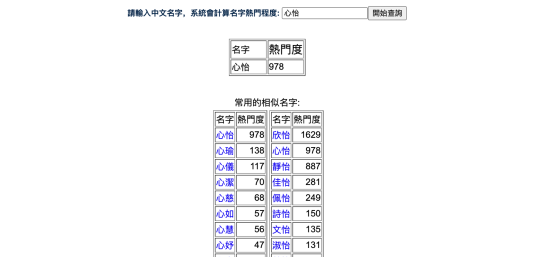
The default name when you click on the page is 心怡. This one is pretty popular. If you know you really want a name with the character 怡, you can enter in 怡怡 so it will show all the most popular names with this character (both in the first or second position), like below:
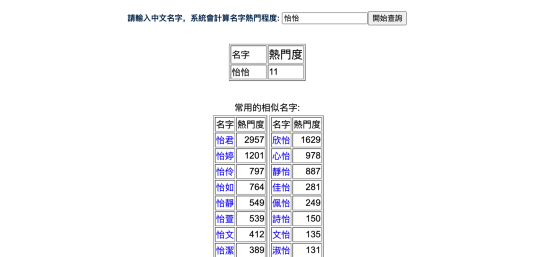
Some other pages of interest are the list of most popular characters in names (常用名字[單字]) and the list of most popular names (常見名字). You can click on each character or name to see more. According to the website, about 90% of names are made up of the top 500 most popular characters, and the 1000 most popular names made up 22% of people. So if you want a “normal” sounding name, this is a great resource. If you’re wondering, the most common character is apparently 怡, with the most popular name being 怡君!
Resource #2 NameChef
This site is available in English and Chinese, so it’s relatively accessible for people who don’t speak Chinese. However, some of the specific information on individual names is only in Chinese. Also, that it seems to default to displaying traditional characters when you are in English mode, so you may need to ensure you are entering traditional characters in some of the later steps.
First I’ll discuss the name generator. This feature is great because it allows you to specify a region (Mainland, Hong Kong, Macau, Taiwan, Singapore, Malaysia, or any). Different regions have different naming trends. I can’t vouch entirely for how good this feature is, but I think it’s so cool that they offer it.

Another cool feature is that you can specify different traits. I can imagine this would be great for those of you looking for a name for an original character. You can also skip this step if you don’t have a preference.

Next you can enter a surname and a character you want included in the given name. As you can see, you can pick to include a character but not specify placement, specify the first character, or specify the second character. This is also good for 字辈 or if you’ve selected a character you want to include but are not sure how to finish formulating the name.
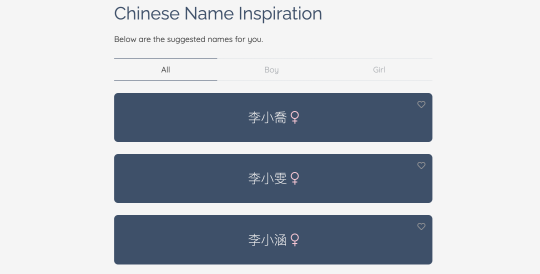
Here’s my list of names. It happens to just have female ones at the top, but since I’m on the “all” tab, it’s actually displaying a mix.
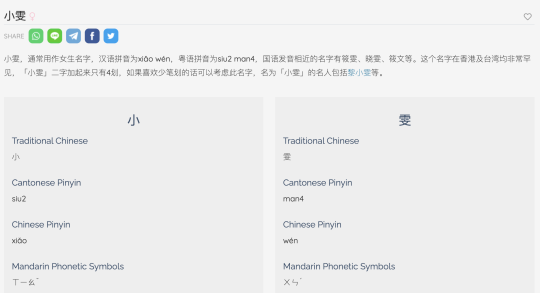
If you click on a name, you can see some more information. Further down, the page also shows stuff like gender, popularity of the name by region, and names with similar pronunciation. However, I noticed that the site isn’t the best at noting which names are more gender neutral, so this is something to keep in mind.
This site also has pages on popular namesandcharacters by region! I find this stuff very interesting. The lists definitely reflect some trends in names I’ve observed by region, so even though I don’t know the data source, it seems fairly accurate.

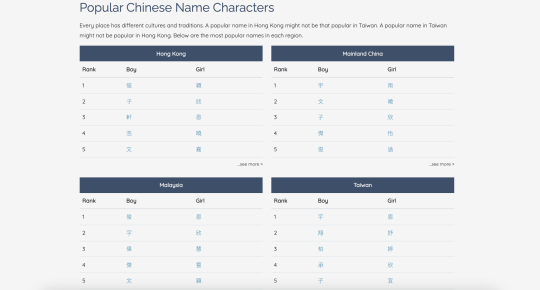
Resource #3: Provincial Databases (重名查询)
Some provinces have websites where you can enter names and see the number of people with the name. Sometimes they include a gender breakdown too. There is actually a government site for the whole country that does this, but I think you have to be a Chinese citizen to use it. Luckily, some of the individual provincial services don’t require this. There are probably more sites for other provinces, but I’m just going to list a few. Guangdong, Henan, and Shandong are the three biggest provinces in China, so those are always good ones to start with. These sites are all in Chinese.
- Shandong (city breakdown)
- Jiangsu (gender breakdown)
- Henan (search by whole province or city/county)
- Jiangxi (gender, age, and even astrological breakdown)
- Guangdong (gender breakdown)
- Liaoning (gender and city breakdown)
If you use one of these sites, first I recommend trying a super common name like 张伟 so that you can use that information to interpret your results. Also, I believe for all of these site you have to enter a surname, so you can just pick a common one like 王, 李, or 张 (or whatever the most prevalent surname is for that individual province).
I hope these resources are helpful to you! If you know of other good websites, I’d love to see them too.
Today I’m sharing 13 成语 that each contain all 4 tones (not counting the neutral tone). I just find them really cool for some reason. I either learned these 成语 in class or have encountered them online independently. Example sentences from Pleco.
重男轻女 zhòngnánqīngnǚ - lit. to value males and belittle females (idiom)
中国
我们不应该有重男轻女的观念。异口同声 yìkǒutóngshēng - different mouths, same voice / to speak in unison (idiom)
“没问题。”同学们异口同声地回答。班门弄斧 bānménnòngfǔ - to display one’s slight skill before an expert (idiom)
在你面前班门弄斧,太不好意思了。刻骨铭心 kègǔmíngxīn - lit. carved in bones and engraved in the heart (idiom) / fig. etched in one’s memory / unforgettable
父母对子女的爱,是如此的刻骨铭心。装聋作哑 zhuānglóngzuòyǎ - to play deaf-mute / to feign ignorance
他装聋作哑,说他一点也不知道。南腔北调 nánqiāngběidiào - to speak with a mixed accent
他讲话南腔北调的。胡思乱想 húsīluànxiǎng - to indulge in flights of fancy (idiom); to let one’s imagination run wild
你要是以为自己可以获胜的话,一定是在胡思乱想!海枯石烂 hǎikūshílàn - lit. when the seas run dry and the stones go soft (idiom) / fig. forever / until the end of time
我爱你到海枯石烂。寒风刺骨 hánfēngcìgǔ - bone chilling wind (idiom)
在寒风刺骨的夜里,街上安安静静的。生儿育女 shēng'éryùnǚ - to bear and raise children
他们决定开始生儿育女。言之有物 yánzhīyǒuwù - (of one’s words) to have substance
这篇文章言之有物。举足轻重 jǔzúqīngzhòng - a foot’s move sways the balance (idiom); to hold the balance of power / to play the decisive role
她在政府中的作用举足轻重。以防万一 yǐfángwànyī - to guard against the unexpected (idiom); just in case / prepared for any eventualities
也许不会下雨,不过还是带把伞,以防万一。
I wanted to update this post with some additional 成语. Some of them have been featured on my blog before (mostly from one of my 50 成语 posts hereandhere), but I thought it would be nice to have them collected altogether.
多管闲事 duōguǎnxiánshì - meddling in other people’s business
现在我了解情况了,真希望自己当初没去多管闲事。
步履蹒跚 bùlǚpánshān | bùlǚmánshān - to walk haltingly / to hobble along
那位老太太步履蹒跚地走下楼梯。
My Chinese teacher said this chengyu can also be pronounced bùlǚmánshān.
淡然处之 dànránchǔzhī - to treat indifferently or coolly
面对困难,他淡然处之。
无懈可击 wúxièkějī | wúxièkějí - invulnerable
需要更多证人让案子无懈可击。
In Taiwan, 击 is pronounced jí, so this 成语 wouldn’t fit the all 4 tones requirement.
庸人自扰 yōngrénzìrǎo - to get upset over nothing / to make problems for oneself
事情已经解决,你就别庸人自扰了。
举世无双 jǔshìwúshuāng - unrivaled / world number one / unique / unequaled
他表演的冰上舞蹈真是举世无双。
明目张胆 míngmùzhāngdǎn - openly and without fear / brazenly
小偷明目张胆地开偷来的车。
火上加油 huǒshàngjiāyóu - to add oil to the fire / to aggravate a situation / to enrage people and make matters worse
他心情不好,别火上加油。
提心吊胆 tíxīndiàodǎn - to be very scared and on edge
我对考试结果感到提心吊胆的。
天旋地转 tiānxuándìzhuàn | tiānxuándìzhuǎn - the sky spins and the earth goes round / giddy with one’s head spinning / huge changes in the world
我一站起身就觉得天旋地转。
This 成语 can be pronounced with zhuàn (Mainland) or zhuǎn (Taiwan). Obviously it only contains all 4 tones with zhuǎn.
倾盆大雨 qīngpéndàyǔ - a downpour / rain bucketing down / to be overwhelmed
倾盆大雨让地面湿透了。
天理不容 tiānlǐbùróng - heaven cannot tolerate this / intolerable behavior
对于她来说,这种行为简直天理不容。
奇货可居 qíhuòkějū - rare commodity worth hoarding / object for profiteering
他们把票子当做奇货可居。
There are 15 total tone orders present out of 24 possibilities (4 * 3 * 2 *1). Which orders are included? Let’s look!
6 成语: 1243
3 成语: 2143, 4321
2 成语: 2134, 2431
1 成语: 1324, 1342, 2413, 3124, 3214, 3241, 3412, 3421, 4213, 4231
I thought it was very interesting that 1243 led by quite a bit! I totally did not notice as I was drafting this post. But this is just a small sample, so it isn’t necessarily representative of all 成语.
Yesterday for fun, I took an HSK level test from hsklevel.com–I hope it is accurate because I am quite pleased with the results haha!
I will say that this test felt REALLY HARD. It shows you words/characters and you indicate whether you know the word or not. I felt like I was saying no to over half! But I guess it learned from my answers and was showing me more and more difficult words to find my “breaking point,” which is what my teachers have said a language assessment is supposed to do.
I actually took it twice. I got very similar results the second time, so I’m just going to show the scores from the first time.

I don’t really know how to assess if the 11,030 words is accurate, but it sounds like a lot so I am fine taking their word for it :)
I wouldn’t say I’m at 90% comprehension for movies, social media, blogs, and literature…I’m guessing maybe the HSK words are sorted into categories, so it’s supposed to mean something like “you can understand 90% of literature written at an HSK 6 level.” Which isn’t quite as impressive. As it’s been said, HSK 6 only gets you halfway there.
I will say it is definitely true in my experience that my news comprehension is lower. But I have some resources I’ve gathered that focus on news articles, so I know I can strengthen that skill later on.

This above is the HSK which is going to be phased out. I’ve estimated previously that I am in the HSK 6 zone because a fair number of new words I encounter are HSK 6 words (I think most are not in the HSK vocab list at all). So this feels pretty accurate to me!
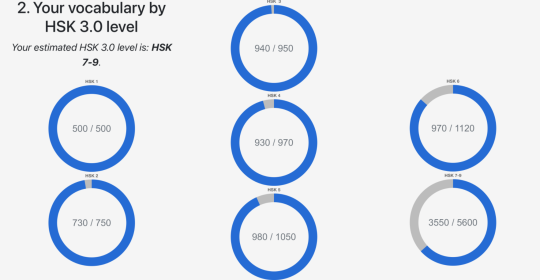
I have been curious about how my ability maps onto the new/incoming HSK, so this is quite interesting to see. I know people reacted to the new levels with some disappointment that they might be bumped down in terms of the “number,” so I will admit I am pleased to see these results.
When I took the test a second time, it estimated my HSK 3.0 level as 6 instead, but the number of HSK 6 and 7-9 words it estimated I knew was not that much lower, so I guess I am somewhere around the cutoff. I’m happy either way.
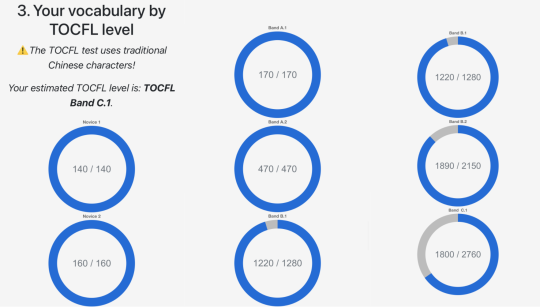
I don’t know that much about TOCFL so I don’t really have anything to say. Does it correspond to CEFR levels?? It kinda looks like it might.
Now I am thinking I should look over the CEFR guides again…whenever I do look at them, I’m never sure if I’m under or overestimating myself, you know? I feel like it’s better to underestimate your ability and then surprise people, but also you wouldn’t want to miss out on opportunities due to this. And overestimating might push you to grow more.
Obviously this is just an estimate test, and even the real HSK test isn’t a perfect assessment of language abilities. But since the HSK is so commonly talked about as a metric, it can be useful in some contexts. I’ve never used HSK-oriented materials or done specific HSK prep, so I’ve never been sure where I would fall on the HSK scale.
This is a followup to my post Chinese Surnames You Might Be Pronouncing Wrong, but now the focus is on given names. Technically, some of the characters below can be surnames, but they’re uncommon, so you will likely encounter them given names more than as surnames. Most of the characters below have multiple pronunciations, and their typical pronunciations as part of a given name might not be what you’re accustomed to. So let’s begin!
兴 - Like me, you probably first encountered this character in words like 高兴 and 兴趣. But then I learned the word 兴奋…and here it’s xīng not xìng!!! 兴 with the first tone can be a surname, but it’s rare. But you will definitely encounter it in given names.
Example: 周兴哲 (Zhou Xingzhe/Eric Chou)
一 - You have probably read about tone changes for this character that result in it being pronounced yì or yí. This also applies to names! It becomes yì before 1st/2nd/3rd tone, becomes yí before 4th tone, and remains yī at the end.
Examples:
Idol and actor 王一博 (Wang Yibo) ← before 2nd tone
SIS member/TCO3 contestant 洪一诺 (Hong Yinuo) ← before 4th tone
Singer/Produce Camp 2019 contestant 李鑫一 (Li Xinyi) ← end
少 - We all know shǎo. But do you shào as in 少年, 少女, 少林, etc.? Now you do. When 少 is used in names, I’ve only ever heard it pronounced shào.
Example: Actor 余少群 (Yu Shaoqun)
乐 - This one is kinda complicated. First we have 快乐的乐 and 音乐的乐. Both pronunciations can be surnames, but they are not so common (Baike says Yuè is more common). When this character is used in given names, I’ve only heard it pronounced lè. But there could be someone out there who says it as yuè.
Example: NCT member 钟辰乐 (Zhong Chenle)
茜 - This character can be pronounced xī or qiàn. It seems qiàn is the standard pronunciation for names. According to MDBG, the xī pronunciation is used in transliterated names. Interestingly, I noticed while watching the Olympics that gymnast 唐茜靖 is Tang Xijing and not Qianjing, but looking at her Baike entry seems to confirm that xī is not the standard pronunciation in names.

Example: Actress 万茜 (Wan Qian)
燕 - 1st tone Yān is a surname, but it’s not that common. 4th tone yàn is what you’ll find in given names.
Example: Singer 孙燕姿 (Sun Yanzi/Stefanie Sun)
柏 - This character in given names, in my experience, is always bó. The character can also be pronounced bǎi in Mainland China, and Bǎi can be a surname. But in Taiwan, it’s always pronounced bó (according to MDBG).
Example: Singer/Rapper 潘玮柏 (Pan Weibo/Wilber Pan)
蔚 - Apparently this character can be the surname Yù, but it’s not a very common surname, so I’ve only been exposed to this character in the word 蔚蓝 and in names. In these cases, it’s pronounced wèi.
Example: Singer 莫文蔚 (Mo Wenwei/Karen Mok)
露 - By now you may have noticed that a lot of characters can be surnames (but are pretty rare). This is one of these characters as well. It can be pronounced lòu or lù. Lù is the pronunciation as a surname and in given names.
Example: Actress 赵露思 (Zhao Lusi)
为 - I’m sure I’m not the only one who sometimes gets a headache over how to pronounce this character. It’s not hard to remember the difference in meaning between wéi and wèi, but sometimes in the middle of long, complex sentences, I have trouble telling which pronunciation/meaning is being used until the end of the sentence. Anyway, in names, this character is typically pronounced wéi.
Example: Actor 佟大为 (Tong Dawei)
强 - You are probably aware that this character has multiple different readings/meanings. The most common is probably qiáng, but I encounter qiǎng a lot too (poor jiàng is rare), so I thought this character was worth including. In names, it is pronounced qiáng. This becomes pretty clear when you think about the difference in meaning between the two pronunciations.
Example: Chinese premier 李克强 (Li Keqiang)
媛 - This character has two readings, yuán and yuàn. The two meanings are also similar, with both relating to beauty. In names I have only ever heard the yuán pronunciation. 媛媛 is itself a fairly common name.
Example: Wife of Xi Jinping, 彭丽媛 (Peng Liyuan)
靓 - This one is tricky. The character can be pronounced liàng or jìng. I wasn’t able to find a definitive answer about how it is usually pronounced in names. However, I noticed in a cross-strait dictionary that for several words that use the liàng pronunciation in Mainland China, the jìng pronunciation is used in Taiwan. I found several Taiwanese actors/singers with 靓 in their names, and they all appeared to use the jìng pronunciation. Also, I have read that several words pronounced with liàng in Mainland China are borrowed from Cantonese. So, if you meet someone from Taiwan with this character in their name, it’s probably pronounced jìng. If you meet someone from Mainland China, I would guess liàng. But be prepared to be mistaken just in case.
Examples:
Singer 张靓颖 (Zhang Liangying/Jane Zhang)
Actress 阳靓 (Yang Jing/Peace Yang)
Now for a few some cross-strait differences!
妮 - This character can be found in female given names. In Mainland China it is pronounced nī; in Taiwan it is ní.
Example: Actress 倪妮 (Ni Ni)
薇 - This character is used in a lot of female names too. Like the similar character 微, this character is pronounced wēi in Mainland China but wéi in Taiwan.
Example: Actress 赵薇 (Zhao Wei)
夕 - I mentioned this character in my post about characters pronounced differently in Mainland China and Taiwan. It is xī in Mainland China and xì in Taiwan.
Example: Acclaimed songwriter 林夕 (Lin Xi)
汐 - You can probably guess from the character above how this character is pronounced. Yep, it’s xī in Mainland China and xì in Taiwan.
Example: Actress 任素汐 (Ren Suxi)
锡 - This character is pronounced xī in Mainland China but pronounced xí in Taiwan.
Example: Global Times Editor-in-Chief 胡锡进 (Hu Xijin)
I’m trying to post more this summer, so here’s another Mandopop vocab list. I’ve seriously been seeing some of these words pop up EVERYWHERE. I guess it’s the Baader–Meinhof phenomenon?
- 姿态 zītài - attitude / posture / stance
我们都讨厌她傲慢的姿态。 - 不知不觉 bùzhībùjué - unconsciously / unwittingly
不知不觉已过了三个月。 - 暧昧 àimèi - vague / ambiguous / equivocal / dubious
她与一个已婚男人的关系有些暧昧。 - 放纵 fàngzòng - to indulge / to pamper / to connive at / permissive / indulgent / self-indulgent / unrestrained / undisciplined / uncultured / boorish
我们偶尔都会放纵一下自己。 - 背叛 bèipàn - to betray
这种背叛严重伤害了我。 - 牵挂 qiānguà - to worry about / to be concerned about
好好学习,家里的事不用牵挂。 - 优先 yōuxiān - to have priority / to take precedence
我总是优先考虑我的孩子们。 - 忍耐 rěnnài - to endure / to bear with / to exercise patience / to restrain oneself / patience / endurance
我的忍耐是有限度的。 - 漫无目的 mànwúmùdì - aimless / at random
他过着一种漫无目的的生活。 - 闪烁 shǎnshuò - flickering / twinkling / evasive / vague (of speech)
她的眼睛里闪烁着喜悦的泪花。 - 坦白 tǎnbái - honest / forthcoming / to confess
坦白地说,我根本不在乎。 - 不配 búpèi - unworthy / unsuitable / not fitting
这袜子的颜色和鞋子不配。 - 退路 tuìlù - a way out / a way to retreat / leeway
我们到了没有退路的地步。 - 脸孔 liǎnkǒng - face
我还记得那些名字、那些脸孔。 - 不闻不问 bùwénbúwèn - to show no interest in sth / uncritical / not in the least concerned
她对这件事情完全不闻不问。 - 空白 kòngbái - blank space
我脑子突然一片空白。 - 标本 biāoběn - specimen / sample / the root cause and symptoms of a disease
苏州园林是中国园林的标本。 - 坐立不安 zuòlìbùān - agitated sitting or standing / restless / fidgety
都半夜了,儿子还不回家,母亲坐立不安。 - 无所事事 wúsuǒshìshì to have nothing to do / to idle one’s time away
孩子在家一整天都无所事事。 - 着迷 zháomí - to be fascinated / to be captivated
老爷爷的故事让孩子们听得着迷了。
These words are so fun to me! They are truly just fun to say. There are also A TON of words with this ABB pattern, so I’m only listing 20 that I’m familiar with. Please enjoy them :)
- 空荡荡 kōngdàngdàng - absolutely empty / complete vacuum
- 孤零零 gūlínglíng - lone / isolated and without help / all alone / solitary
- 毛茸茸 máorōngrōng or máoróngróng - hairy / shaggy
- 肉乎乎 ròuhūhū - plump / fleshy
- 阴森森 yīnsēnsēn - gloomy / gruesome / ghastly
- 热腾腾 rèténgténg or rètēngtēng - steaming hot / bustling / hectic / excited / stirred up
- 阴沉沉 yīnchénchén - dark (weather, mood)
- 香喷喷 xiāngpēnpēn - delicious / savory
- 空洞洞 kōngdòngdòng - empty / deserted
- 赤裸裸 chìluǒluǒ - bare / naked / plain / undisguised / unadorned
- 笑盈盈 xiàoyíngyíng - smilingly / to be all smiles
- 眼睁睁 yǎnzhēngzhēng - to stare blankly / to look on helplessly / to look on unfeelingly
- 笑嘻嘻 xiàoxīxī - grinning / smiling
- 甜蜜蜜 tiánmìmì - very sweet
- 黑乎乎 hēihūhū - black / blackened / dark / dim / blurry
- 绿葱葱 lǜcōngcōng - green and luxuriant
- 急匆匆 jícōngcōng - hurried / hasty
- 笑眯眯 xiàomīmī - beaming / all smiles
- 湿淋淋 shīlínlín - dripping wet / drenched
- 光闪闪 guāngshǎnshǎn - shiny / gleaming / brilliant
Attention langblrs (especially Japanese), like this so I can check out ur page pls! (*´꒳`*)

